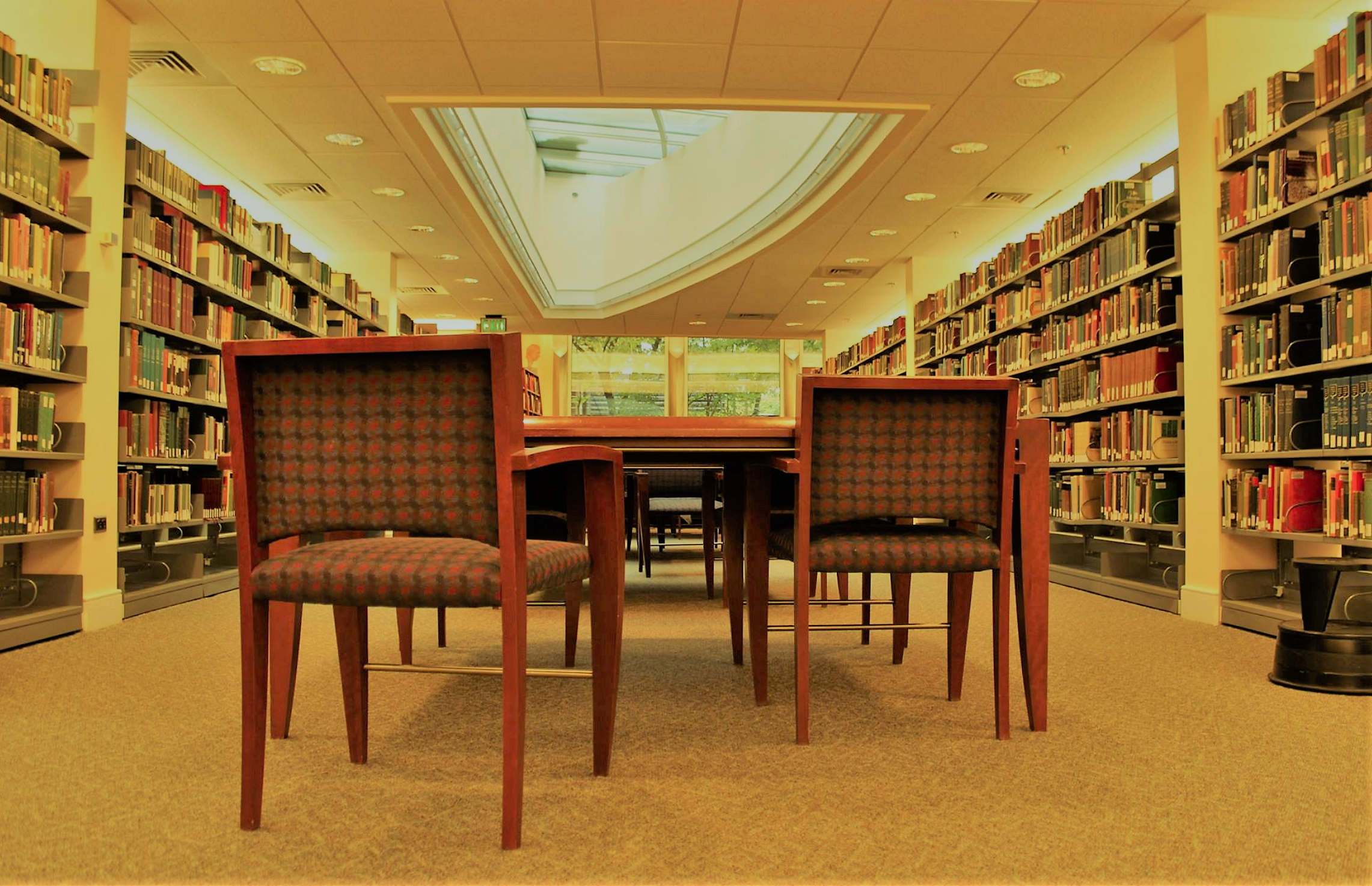A Letter to St. John's: Hayley River Smith on Creating a More Inclusive Learning Environment
Ms. Smith is an Annapolis campus Graduate Institute alumna ('20). She is currently continuing her studies at the prestigious Sotheby's Institute of Art pursuing a master's degree in Art Business. I want to thank her for allowing me to share with you her thoughts on how to create a more inclusive learning environment at St. John's.As my time comes to an end, I would like to reflect on what the St. John’s College’s Graduate Institute has given me. I considered St. John’s because throughout my education I have felt within me a drive to think deeply and examine the world around me. So when the question of what I would critique about my education thus far was asked in the Graduate Institute's essay application I knew instantly what I would say:
I love the community I am a part of and I share many of the same values as my peers, but the lack of diversity of ideas can constrain, rather than build. It is not because other views do not exist here but because they are often silenced. That would be the main critique of my education hitherto. People are unwilling to converse when someone’s views go against their own. I want my peers to talk to me about information I have not heard before. I want my professors to ask me questions that I do not have an answer to. But when we all believe the same things there is no room for transformation. We cannot circle back because we are not moving at all. The examining and reexamining of concepts is a part of how we come to understand them thoroughly. We stay the same and we do not do justice to our own identity.
St. John’s was the answer to that in many ways. I am leaving with an abundance of knowledge that I otherwise would not have at this moment, a familiarity with texts that take me beyond the reaches of my undergraduate experience, and a better understanding of my own education. The reality is I wouldn’t change my personal experience within the program because it has brought me to a point of realization that I can no longer sit silently and allow for someone else to do the same. There is a need to reevaluate the true purpose of the Graduate Institute and if that goal is being achieved within the classroom; that may be considered in terms of the discussion itself, representation, the feedback given, and the needs of each student.During my first semester in the graduate program, I felt stupid and in certain moments I truly believed it. I often find myself listening and processing for a bit before I speak, but quickly I found that even though some say listening is enough it is not the case for everyone. So, I adjusted, as we must in new environments, and began to ease myself into the conversation, and Irarely found my ideas getting traction. In an environment that encourages extemporaneous speaking, occasionally ideas can fall flat, but I found some of my classmates glazed over my words as if they were but a whisper. And again I found myself falling silent. It’s not to say I interacted with the text less than anyone else, but it became more solitary in certain ways. I’d still have moments of excitement about a text or idea and while feeling completely enveloped by it found myself speaking from a place of passion and maybe clarity. I felt that about the poem Asphodel, That Greeny Flower, by William Carlos Williams, which we read for a Preceptorial class on American Poetry. You see, we were talking about the way in which he is expressing love to his wife and it lit a little fire in me. I found the way he spoke about himself, his affairs, death, and loving her frustrating. I questioned if his words were genuine or his love was true, and as the conversation progressed I became quite sure of a sort of selfishness lying between the lines. It didn’t feel too much like love to me, at least not a kind I would want. Some agreed and others didn’t but one response still sticks with me. A man at least twice my senior laughs under his breath and says, “what would you know about love.” I pretended like I didn’t hear his words. Nevertheless, we moved on with the conversation and that was that.The issue here for me lies in the fact that his comment was not only patronizing but also irrelevant. Naturally, many people in the class brought up their own personal relationships in order to grapple with this poem. Why did his perception of my life experience thus far need to act as a mark against me, making my comments less legitimate or important than his? This has not been the most upsetting or only occasion this kind of behavior has been upheld and through conversations with my peers, I realize it is not an isolated issue. The toleration of comments like these points to the symptom of a greater problem and our inaction will only continue to allow for it to grow.I began to see again that my silence did not go unnoticed as I would enter into meetings with my tutors halfway through the semester, “we would love to hear you speak more” they said. Like clockwork, I would nod, try, and then feel exhausted once more. Most of the time I could get my ideas across through my essays and oral exams which I grew to love and look forward to but it wasn’t always enough. Aware of it or not, each of us is perpetuating a problem at this college about the determination of who is heard. I did. Not in every moment but in many, I made a choice to say nothing because it was easier than feeling discouraged, unheard, or misunderstood. It has been in my last two semesters at the college that I have felt especially frustrated as I continued to wrestle with this feeling. Through conversation with peers that I trust I have realized the deep-seated issue that exists among us whether we can acknowledge it or not and I worry that the online classes as they are at this moment allow for this potential inequity to fester and grow.In my classes over zoom, I have noticed a rise in comments riddled with privilege, ignorance, and a lack of self-awareness. Maybe the distance that online learning allows, while essential, is also a part of the problem. Something that ties us together in the classroom is our common humanity. However, at this moment, we are not sitting arm in arm, instead, we stare at each other in little boxes on the screen. It is during these times I have felt most constrained in whose voice is valued or simply listened to. I have watched as some of my classmates try to pick apart my words as if they don’t make sense even though they barely listened to what I said in the first place. Then, others speak about things so far outside of the text that it becomes undoubtedly unproductive while those who couldn’t try to conceive of what I was saying nod and engage in this off-topic conversation. We talk about texts, like the founding documents of this country and court cases that for a long time decided who was considered human or who deserved rights andwe speak about inequality while we stare at those boxes, of mostly (if not all) white faces. It gives some people free rein to say things they might not if they had to look in the eyes of their classmates or sit with them and eat a slice of pizza after seminar. It also appears that the voices that speak up against these comments go unheard. We all come to the table with different ideas of the world and that is absolutely valuable but in that, it also seems essential to recognize our own privilege as well. If we cannot do that the community becomes a difficult and disappointing place for those who do not look or think like the loudest or most persistent voice in the room.Now, I come to this very moment at the end of my time in the program where I am writing to process what I will do with this knowledge I have gathered. So, in the very spirit of the college, I will ask a question: Is this an equitable environment? At this moment, my own answer would be no. I don’t want to sound as if I am asking for pity or some sort of apology and that is not what I am hoping for. What I would like is a movement towards what I wrote about in my application because if someone asked me if I would do all of this again, I would say yes. I’m aware that the world is filled with moments similar to this one. I know that many voices don’t even have the opportunity to make it into these conversations. I am also sure that not every mind feels free. The way in which the program cognizes the depth of student knowledge, the validity of each student’s voice, and the intention behind some comments made within the classroom demands acknowledgment and must be examined further. I believe that the perpetuation of this classroom culture, both through action and inaction, ultimately hinders the overall mission of the college and its philosophy. I know if I left without speaking up I would regret a part of my time here and I don’t want to wish any of this away.Considerations moving forward:How do we create an environment where the students listen fully and deeply to their peers? What responsibility do not only tutors but students have in regulating one another? How can we empower students to recognize what comments are not helpful or even harmful? How can we create an environment that is receptive to constructive criticism? Are we given the resources and space to recognize inequity within the classroom? Ultimately, I think if we allow for this to continue without true consideration and change the program will lose touch with itself completely. It will no longer serve a purpose to many individuals who want to be a part of it but can’t because the feelings that deter them, while absolutely real, go unnoticed and unchanged.

